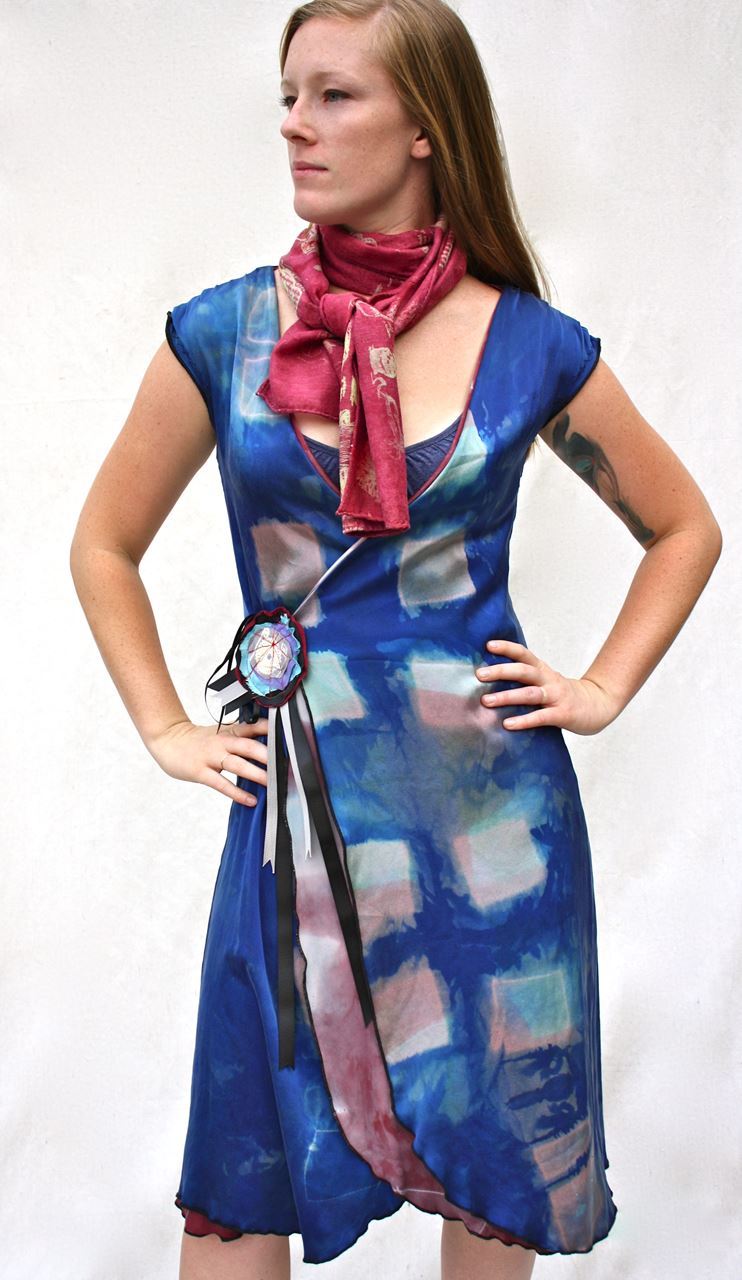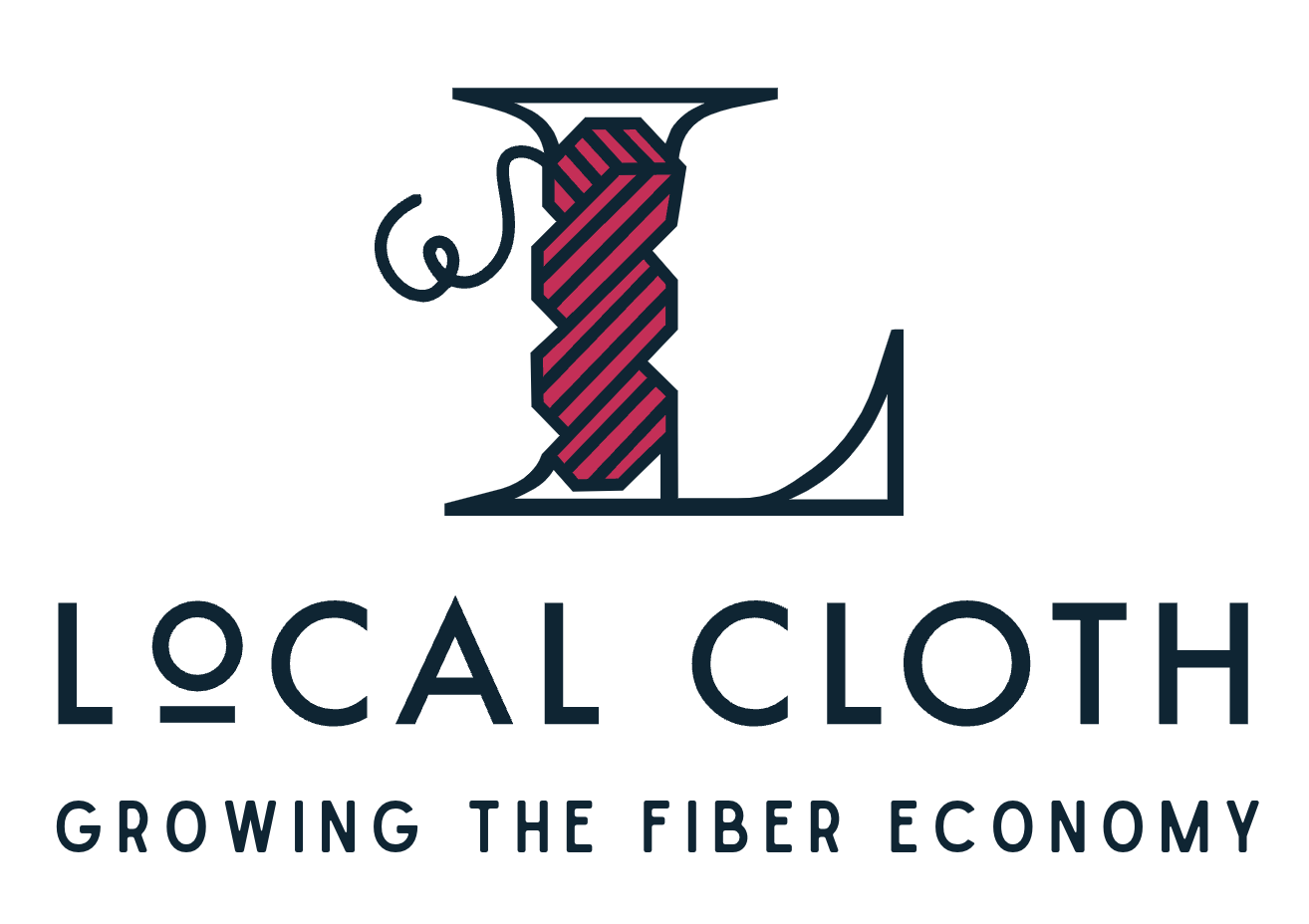
This is a virtual class which will take part on zoom. You will receive a copy of the recording which you can rewatch at anytime.
“Shibori is the simple yet sophisticated Japanese ancestor of tie-dyeing, newly popular with many modern adaptations. We will use straight-forward, immediate hands-on methods of clamping, tying, stitching, and wrapping resists on silk fabrics, then immerse them in vibrant fiber-reactive and acid dye baths to layer rich colors and gorgeous patterns. We will dye silk in silk-specific baths and cotton, silk, and other fabrics in plant-specific baths and more fiber-general Pre-Reduced Indigo bath. Students may bring blank fabric, scarves, t-shirts, apparel pieces, and household items to dye and finish in this fun and fast-paced workshop.
‘This one-day workshop is a great way to get you started dyeing and to make lots of holiday presents as well as adding pattern and personality to your wardrobe and home. These baths are also reusable, so you can continue playing and dyeing on your own after the workshop ends. I have structured this class with some work time, so I encourage you to get all the materials and work along with me through the day. However, since you are working from home, it is okay to actively observe (watch, take notes, ask questions) for reference for future work on your own.”
Level: Beginning to intermediate
Materials fee: 0
Registration: Members $100, Non-members $120
Instructor: bio Jen Swearington
“Shibori is the simple yet sophisticated Japanese ancestor of tie-dyeing, newly popular with many modern adaptations. We will use straight-forward, immediate hands-on methods of clamping, tying, stitching, and wrapping resists on silk fabrics, then immerse them in vibrant fiber-reactive and acid dye baths to layer rich colors and gorgeous patterns. We will dye silk in silk-specific baths and cotton, silk, and other fabrics in plant-specific baths and more fiber-general Pre-Reduced Indigo bath. Students may bring blank fabric, scarves, t-shirts, apparel pieces, and household items to dye and finish in this fun and fast-paced workshop.
‘This one-day workshop is a great way to get you started dyeing and to make lots of holiday presents as well as adding pattern and personality to your wardrobe and home. These baths are also reusable, so you can continue playing and dyeing on your own after the workshop ends. I have structured this class with some work time, so I encourage you to get all the materials and work along with me through the day. However, since you are working from home, it is okay to actively observe (watch, take notes, ask questions) for reference for future work on your own.”
We will work with dipping in 3 different dyebaths:
Cold Water Pro MX Dye, mix in small buckets
Hot Water Acid Dye, cook in cook pot on stove or hotplate
Cold Water Pre-reduced Indigo, mix in bucket
All dyes and chemicals are available at Earth Guild in Asheville, NC, at www.dharmatrading.com (California), and at www.prochemicalanddye.com (Massachusetts). I recommend buying smaller quantities to try, like 2-8 ounce jars of dye powder; you won’t need more than that. You can get vinegar at the grocery store, and while soda ash (sodium carbonate) is available from the dye suppliers, you can also find it in larger quantities (labeled as PH-Up) in the pool care/ hot tub care section of home improvement store. Both vinegar and soda ash are dye ACTIVATORS needed to make the dye bond with the fabric, so be sure to get them- they are NECESSARY to the dyeing process. Thiox is additionally NECESSARY for the Indigo dyebath.
Silk and Cotton:
For acid dyes, we will use silk fabrics. For Indigo, we will use silk, cotton, and other natural fiber fabrics. You can dig around for scraps, old fabrics, boring t-shirts, as well as buy scarf and apparel blanks to print. If you get them, you will easily dye at least 4 silk scarves in this workshop. You can even experiment with folding and dyeing notecards and paper. Let’s use what you have! Fabrics and blanks labeled PFD (Prepared for Dyeing) won’t need to be prewashed, but if you purchase fabric like muslin or other yardage from the fabric store, I recommend prewashing it with Synthrapol to remove dirt, sizing, glues, etc that can inhibit the dye process.
MATERIALS
General:
Notebook and Pen
Pencil
Apron and Gloves (I like long dishwashing gloves, not disposable)
Scissors or thread snips
Spritzer bottle of water or nearby faucet
Dyes and Chemicals:
Pro MX Fiber Reactive Dye: 1-2 primary colors (blue, red, yellow)
Sabraset/Lanset Acid Dyes: 1-2 colors you like (black, brown, purple, teal, etc.)
Pre-reduced Indigo, 1 packet
Thiox (Thiourea dioxide), about 4 ounces
Synthrapol (or generic Prosapol), detergent for working with dyes, about 4 ounces
White Vinegar, at least 1 quart
Soda Ash (sodium carbonate), at least 8 ounces
Dyebaths:
Use old utensils, spoons, cups, buckets, bowls and cook pots, or thrift-shop for them, but NEVER INTERMIX your food-prep kitchenware with dye prep tools.
Small cup for mixing (like yogurt cup)
Spoons for mixing
Stirring stick
MX dyebath: small buckets or plastic cups (like dairy containers)
Acid dyebath: cook in cookpot on stove or hotplate
Pre-Reduced Indigo dyebath: 2-3-5 gallon bucket
Shibori Mechanics: What you will use to resist the dyes:
Tying and Stitching:
Roll of string, twine, yarn, etc.
Spool or cones of thread, great to use up old thread
At least 1 hand sewing needle- I like long, sharp, thin, with big eye for easier threading
Optional- needle threader
Clamping:
Spring clamps (recommend a variety bag at home improvement store)
C-clamps- a few if you have them
Clothespins- a few if you have them
Office Binder Clamps- a few if you have them
Thin wooden, scrap cardboard, metal shapes: blocks, washers, lids, that will get clamped
Arashi (Storm) Pole Wrapping:
At least 1 empty wine bottle (recommend straight sides, not tapered) or other tall, straight-sided bottle
Roll of string, twine, yarn, etc.
Optional recommended resource books
(I like but you don’t need for class):
“Shibori: The Inventive Art of Japanese Shaped Resist Dyeing” Yoshiko Iwamoto Wada et al
“Shibori on Silk” Karren Brito
“Memory on Cloth: Shibori Now” Yoshiko Iwamoto Wada
